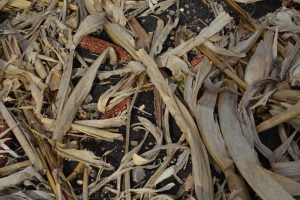POET is continuing its sustainability research as the need for biomass continues to grow as the company heads out of its start-up phase and into full production at its cellulosic ethanol biorefinery in Emmetsburg, Iowa. The company says the program is part of their ongoing commitment to assisting growers in making sound management decisions around harvesting crop residue for cellulosic ethanol.
“Agriculture is the solution to so many of the world’s challenges, and there’s an enormous opportunity in cellulosic ethanol,” POET CEO Jeff Broin said. “As this industry starts to grow, we’re working to make sure that it’s done in a way that is as sustainable as possible.”
In 2014, POET DSM launched its first cellulosic facility, Project Liberty. When in full production, the ethanol plant can produce 20 million-gallons-per year using crop residues such as corn stover. With new avenues for the biomass came a need to better understand the affects of harvesting on land management and soil health. With this in mind, POET has worked with Iowa State University and the USDA for the past eight years, monitoring the soil under various residue removal practices.
In addition to this ongoing research, POET Biomass added two fields of cover crops (a mix of tillage radish and oats) last year to ascertain what impact field cover has when paired with a variety of tillage practices and residue removal rates. This year they are planting rye as a cover crop and adding a third field to expand the variety of cover crop species and mixes to assess their specific soil benefits and the economic implications.
“One year of data is too soon to make any bold statements, but we’re certainly optimistic about pairing cover crops with biomass harvesting for cellulosic ethanol in the future,” said Associate Biomass Research Scientist Alicia ElMamouni. She added that the goal of the research is to determine how cover crops affect soil health, biomass harvesting and feedstock quality as well as the quantity of biomass that can be sustainably removed.


